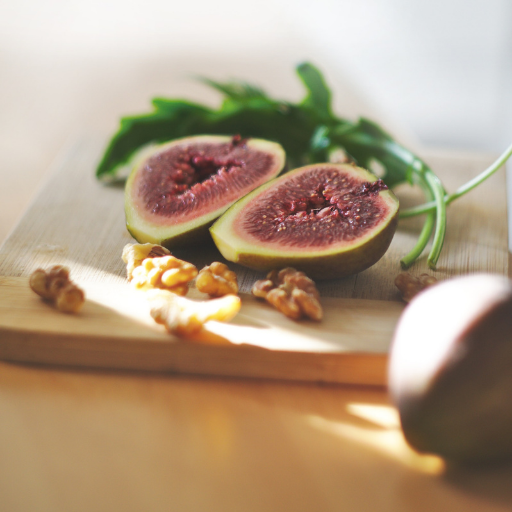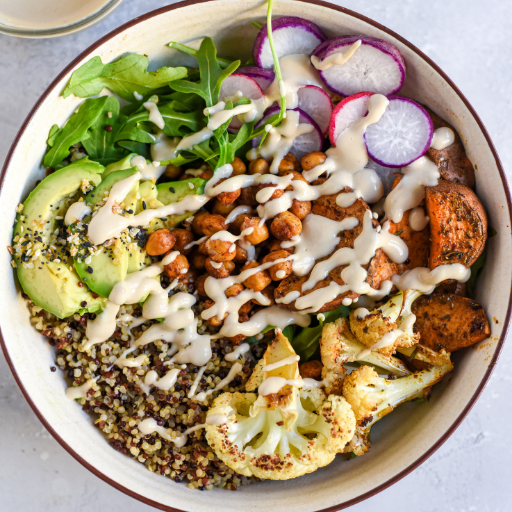Immunity-boosting foods to include in your healthy diet plan
Immunity-boosting foods to include in your healthy diet plan
Immunity has been an ever-present topic and point of interest since the outbreak of the global pandemic, and rightfully so. Our immune system is our body’s shield against infection and illness. Without a strong immune system, our body is unable to recognise and eliminate disease-causing microbes that enter the body (1). But when this system is weak, germs and viruses and other microorganisms can more easily spread through the body and cause illness (2).
Apart from living an active and healthy lifestyle, what we put into our bodies can shore up our immunity. Before we dive into the types of food to increase immunity, let’s first get to know the workings of the immune system.
What can weaken the immune system?
Several factors can weaken the immune system, such as poor nutrition and harmful substances like nicotine, alcohol, and illegal drugs (3). Other poor habits such as not getting enough sleep can also negatively impact your immune system.
Our bodies recover and produce necessary cytokines when we sleep. Cytokines are a type of protein that are crucial in fighting infections or tackling inflammation when under stress. Due to this, long-term sleeping disorders or lack of sleep also increases your chances of developing health conditions, as well as becoming obese. As these conditions compromise your physical health, your immune system will find it difficult to counter infections (4).
But not all immune system weakness is due to poor, unhealthy habits. Some people are born with a weak immune system or primary immune deficiency (PI). When you have primary immunodeficiency, your immune system does not work properly. This leaves you vulnerable to severe infections, which are frequent and last longer than usual. Your body also becomes less responsive to antibiotics.
Read on to find out how to boost immune function and increase intake of foods for immunity.

Food to increase immunity
Since the onset of the pandemic, emphasis has been given to measures that can help keep people safe. People are advised to wear masks, wash their hands, get vaccinated, and boost their immune system through proper nutrition and exercise (5).
Let’s take a look at some immune boosting foods that are a vital source of vitamins to increase immunity:
Fruits
Citrus fruits, such as orange, grapefruit, and lemon, are major sources of vitamin C (6). This vitamin stimulates the production of white blood cells in the body, which is important when we fight off infections (7). It helps to start with small steps by slowly incorporating these foods for immunity, perhaps an orange or apple a day.
Leafy vegetables
Spinach and kale are also good sources of vitamin C and vitamin A (8). Vitamin A is known as an anti-inflammation micronutrient. It’s important for immune system development and has a regulatory role in the responses of the immune cells (11).
Apart from being a good source of essential vitamins, green, leafy vegetables are also easy to mix into almost any dish. For example, you can incorporate a salad into your morning or lunch meals. Just choose a protein (red meat, chicken, prawn/tuna, or tofu) and add leafy microgreens, romaine lettuce, or arugula. Toss in some dressing, other vegetables, nuts, and maybe some fruits and you’re good to go. Beta carotene in yellow, orange and green leafy fruits and vegetables has been shown to increase immune cell numbers and activity (20).
Green tea, rich in polyphenols and loaded with healthy bioactive compounds is a powerful antioxidant (18). A steaming bowl of chicken soup has a mild anti-inflammatory effect that also dilates blood vessels for increased blood flow. It is wholesome, healthy nourishment for the common cold (19).

Seafood
Balance is achieved by putting together a diet which consists of nutrients from various food groups to increase immunity. But as with everything, moderation is the key. Rock oysters, for example, are excellent sources of zinc - a nutrient that helps fight off viruses and bacteria. Our body also needs zinc to create proteins and DNA, which are the cells’ genetic material (9).
Fish oil is also full of omega-3 fatty acids which also have an essential role in immune system regulation (10). This is the type of fat that is actually good for your body, specifically the heart (12). Salmon, trout, and prawns, in particular, contain astaxanthin which is a potent antioxidant. This carotenoid gives this seafood their reddish hue. Research suggests that it may also reduce inflammation and oxidative stress which may strengthen your immune, cardiovascular, and neurological systems (14).
Salmon, a superfood for immunity, is also rich in vitamin D, just like mackerel and herring (17). Vitamin D, while typically sourced by going out into the sunlight, may be difficult to get during the winter season. Consuming sufficient fish and seafood can help you meet your daily requirement of vitamin D. Remember to consume seafood in moderation as some aquamarine life can contain high levels of mercury.
Red meat
As with seafood, moderation is important with red meat and poultry. But they are an important part of your diet, especially if you’re seeking food to increase immunity. Red meats such as beef, lamb, pork, and veal (specifically the liver) are rich in iron. You can also get this nutrient from fish, shellfish, poultry, and eggs.
B Vitamins are a group of vitamins that can be found in red meat and can also be found in other sources, such as vegetables and leafy greens, dairy, and fish. But specifically, vitamin B12 or cobalamin is mostly found in animal foods. B12 is essential in forming red blood cells and DNA and is also an important part in the development and function of the nervous system (15).
Another B complex vitamin that people may want to pay attention to is vitamin B7 or biotin. Studies have shown that not getting enough biotin may negatively impact the functions of your immune cells and enhance inflammatory response (16). This nutrient can be sourced from beef liver and pork, among other options such as cooked eggs, salmon, and sweet potato.
For vegans, however, foods to increase immunity can be found in a variety of fruits and vegetables. They can still source iron from green, leafy vegetables, nuts, and tofu (13). As with other nutrients listed here, vegans and vegetarians may be at risk of nutrient deficiency because of their plant-based diet. In order to circumvent this issue, they can opt for vegan-friendly vitamins and supplements that can be taken alongside a healthy diet.
With or without the pandemic, it’s crucial to support your immune system to stay clear of various infections. Medical advice suggests a balance of free radicals and antioxidants is imperative for optimum immune response and healthy physiological function (21). Eating healthy is key to boosting your immunity, but you can supplement your nutrient intake with vitamins and minerals.
To ensure that you consume sufficient amounts of immunity-boosting nutrients, you can consider vitamin daily packs. These are personalised multivitamins that specifically cater to your needs beyond immunity. Vitable offers supplement subscriptions which include safe vitamin delivery to anywhere in Australia. When paired with a healthy lifestyle and diet, these vitamin packs can help ensure that your immune system is functioning at an optimal state.
Find out more about other areas that the above supplements can help you with:
Zinc | Iron | Astaxanthin | Ashwagandha | Probiotics SB | B complex | Vitamin C | Vitamin D | Daily probiotics | Vitamin B12 | Fish oil | Biotin
*Always read the label. Follow the directions for use. If symptoms persist, talk to your health professional. Vitamin and/or mineral supplements should not replace a balanced diet.
References:
- Health Direct. “Immune System.” Published on n.d. On https://www.healthdirect.gov.au/immune-system. Accessed on 11 October 2021.
- National Cancer Institute. “Infection.” Published on n.d. On https://www.cancer.gov/publications/dictionaries/cancer-terms/def/infection. Accessed on 11 October 2021.
- Johns Hopkins Medicine. “Disorders of the Immune System.” Published on n.d on https://www.hopkinsmedicine.org/health/conditions-and-diseases/disorders-of-the-immune-system. Accessed on 11 October 2021.
- Mayo Clinic. “I’m having trouble sleeping lately. Does this increase my chances of getting sick?” Published on 28 November 2018 on https://www.mayoclinic.org/diseases-conditions/insomnia/expert-answers/lack-of-sleep/faq-20057757#:~:text=Yes%2C%20lack%20of%20sleep%20can,if%20you%20do%20get%20sick. Accessed on 11 October 2021.
- World Health Organization. “Q&As on COVID-19 and related health topics.” Published on n.d. On https://www.who.int/emergencies/diseases/novel-coronavirus-2019/question-and-answers-hub Accessed on 11 October 2021.
- Cleveland Clinic. “8 Vitamins & Minerals You Need for a Healthy Immune System.” Published on 4 December 2020 on https://health.clevelandclinic.org/eat-these-foods-to-boost-your-immune-system/. Accessed on 11 October 2021.
- Oregon State University: Linus Pauling Institute. “Vitamin C.” Published on n.d. On https://lpi.oregonstate.edu/mic/vitamins/vitamin-C. Accessed on 11 October 2021.
- Health Direct. “Vitamin A.” Published on n.d. On https://www.healthdirect.gov.au/vitamin-a Accessed on 12 October 2021.
- National Insitute of Health: Office of Dietary Supplements. “Zinc.” Published on n.d. On https://ods.od.nih.gov/factsheets/Zinc-Consumer/. Accessed on 12 October 2021.
- Saray Gutierrez, et.al. “Effects of Omega-3 Fatty Acids on Immune Cells.” Published on 11 October 2019 on https://www.ncbi.nlm.nih.gov/pmc/articles/PMC6834330/. Accessed on 12 October 2021.
- Zhiyi Huang, et. al. “Role of Vitamin A in the Immune System.” Published on 6 September 2018 on https://www.ncbi.nlm.nih.gov/pmc/articles/PMC6162863/. Accessed on 12 October 2021.
- Harvard T.H. Chan “Protein.” Published on n.d. On https://www.hsph.harvard.edu/nutritionsource/what-should-you-eat/protein/. Accessed on 12 October 2021.
- Health Direct. “Foods high in Iron.” Published on n.d. On https://www.healthdirect.gov.au/foods-high-in-iron. Accessed on 12 October 2021.
- National Cancer Institute. “Astaxanthin.” Published on n.d. On https://www.cancer.gov/publications/dictionaries/cancer-drug/def/astaxanthin. Accessed on 12 October 2021.
- Harvard T.H. Chan. “Vitamin B12.” Published on n.d. On https://www.hsph.harvard.edu/nutritionsource/vitamin-b12/. Accessed on 12 October 2021.
- Sudhanshu Agrawal, et.al. “Biotin deficiency enhances the inflammatory response of human dendritic cells.” Published on 1 September 2016 on https://pubmed.ncbi.nlm.nih.gov/27413170/. Accessed on 12 October 2021.
- Health Direct. “Foods high in Vitamin D.” Published on n.d. On https://www.healthdirect.gov.au/foods-high-in-vitamin-d. Accessed on 12 October 2021.
- https://www.healthline.com/nutrition/top-10-evidence-based-health-benefits-of-green-tea#1.-Contains-healthy-bioactive-compounds Apr 2020
- https://www.spoonfulofcomfort.com/blog/why-chicken-soup-makes-us-feel-better/ Mar 2017
- https://wa.kaiserpermanente.org/kbase/topic.jhtml?docId=hn-2804006 May 2015
- https://www.ncbi.nlm.nih.gov/pmc/articles/PMC3249911/ Dec 2010
